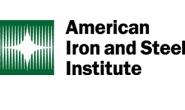Government/Policy

July 13, 2016
AISI CEO Tells Senators China’s Unfair Trade Must Stop
Written by Sandy Williams
AISI, WASHINGTON, D.C. – Thomas J. Gibson, president and CEO of the American Iron and Steel Institute (AISI), today testified before the Senate Banking Committee’s hearing on “Evaluating the Financial Risks of China.” Gibson highlighted global steel overcapacity, market distortions created by China’s state-controlled steel industry and China’s market economy status, among other issues. The committee is chaired by Sen. Richard Shelby (R-AL), and the ranking member is Sen. Sherrod Brown (D-OH), both of whom represent states with a strong steel presence.
“The surge in imports is a result of foreign government interventionist policies that have fueled global overcapacity in steel, more than half of which is located in China. This has led to increased imports of dumped and subsidized Chinese steel in the U.S., which have injured the American steel industry,” Gibson said. “While China is not the only source of the problem, the overcapacity in China is the greatest challenge facing the global steel industry today.”
Gibson said with China’s domestic steel demand declining, the Chinese steel industry has increasingly relied on exports to consume surplus production. Chinese steel exports rose to 112 million metric tons last year, and through May of this year Chinese producers exported 46.3 million metric tons of steel to the world.
“In addition to the excess steel capacity growth not being supported by demand, it is also not supported by profitability. China’s dramatic increase in steel capacity has occurred despite financial returns that are well below those achieved by other steel industries, and even other industries in China,” Gibson said, adding that China’s major steel firms reportedly lost more than $15.5 billion last year alone.
Unlike market-based companies, Chinese state-owned companies can run massive debts because the Chinese government will often direct their state-controlled banks to continually refinance the debt, and ultimately sweep it off the books and into state-created financial firms designed to absorb bad corporate debts and cover losses in Chinese enterprises, he said.
“The steel industry is an example of what can happen to the broader global economy if China does not address its market distortions. For its own sake and that of the global economy, China must implement steps to deflate the country’s debt bubble,” Gibson said.
Gibson made five policy recommendations for the U.S. government, including: vigorously enforcing U.S. trade laws, continuing to treat China as a non-market economy, and pressing for binding commitments from China and other countries to eliminate excess capacity and subsidies.
Other witnesses were: The Honorable Dennis C. Shea, Chairman, U.S.-China Economic and Security Review Commission; Dr. Desmond Lachman, Resident Fellow, American Enterprise Institute; and, Dr. William T. Wilson, Senior Research Fellow, The Heritage Foundation.
Link to Gibson’s full testimony can be found here.







